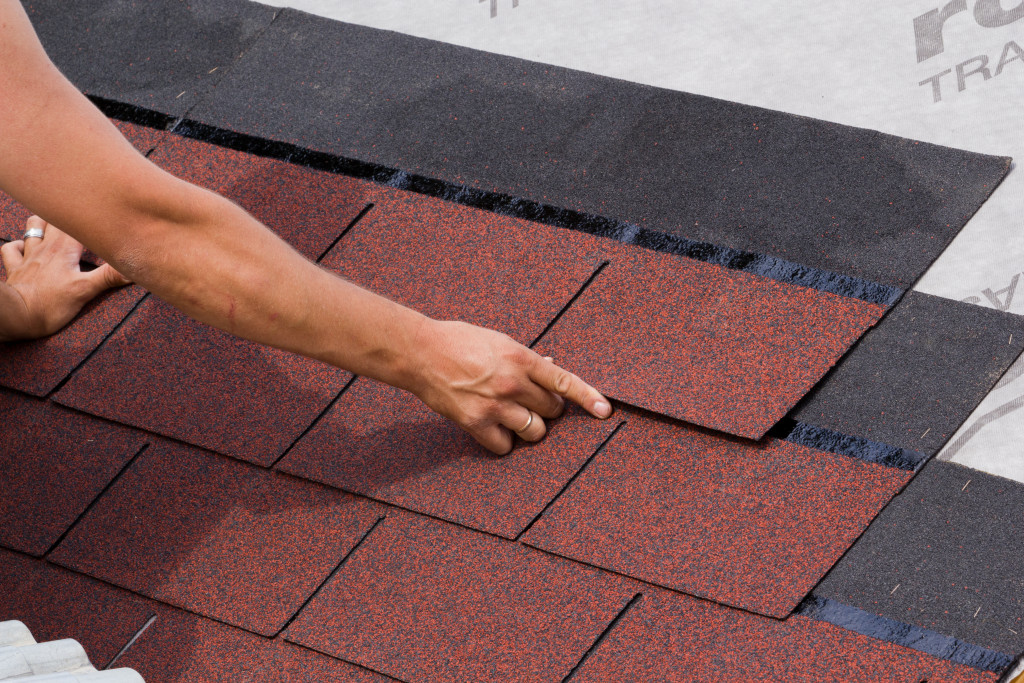Installing a driveway is one of the most laborious parts of building or remodeling a home. That strip of land will be essential for your curb appeal, but it will endure a lot of wear. The pavers will show tire tracks almost every day. And you need to clean it thoroughly every so often for maintenance.
Hence, using the appropriate pavers for your driveway is crucial. You shouldn’t choose a material based only on appearance. Although aesthetic is necessary for curb appeal, the practical details will be more important in the long run.
So, before deciding on a particular driveway finish, consider the wear you’ll put your driveway through. Will you use your car every day? How heavy is your vehicle? How much time and money are you willing to invest in maintenance? And most importantly, what is your budget? Answering these questions will help you narrow down your options and choose the best.
That said, here are the top driveway pavers to consider for your dream home:

1. Asphalt
Coating a concrete driveway with asphalt will make its surface durable and long-lasting. You can also skip the concrete and use gravel as a base. Properly installed asphalt will perform like concrete but at a lower cost.
In addition, asphalt is more flexible than concrete. Hence, it’s not as vulnerable to cracking. It will crack over time but will typically stop short of a long fault-line crack that runs from edge to edge. Plus, snow won’t damage asphalt even when it melts or if you add salt on your driveway.
On the rare occasions that asphalt will crack, you can repair it without a pro. Caulk can fix cracks, while any patching material can fill holes. But to renew asphalt’s pristine condition and prolong its life, you should invest in professional asphalt maintenance. Pros will periodically reseal or resurface your asphalt to hide signs of wear and repair.
2. Concrete
Concrete pavers or slabs are one of the most widely used driveway materials. They’re low-maintenance, durable, and appealing. If you choose slabs, each slab can cover a substantial driveway area, allowing you to save money on smaller pavers.
Note that concrete isn’t the same as cement. Some homeowners confuse the two as the same material. In reality, cement is just one component that makes up concrete. It is just pulverized limestone and clay. On the other hand, concrete is a composite material that consists of different stone aggregates held together with water and a lime-based binder.
Hence, you can pour concrete on your driveway instead of buying concrete pavers or slabs. But going for pavers or slabs will save more time as you won’t need as much concrete mix—assuming, of course, that you already cleared your driveway of grass and debris.
Maintenance is a breeze once the concrete has been installed. You only need to reseal it periodically to boost its durability. It will crack over time, especially in the winter. But with regular sealing, you can keep the cracks small and harmless.
3. Brick
Brick has a mixed reputation in the home improvement scene. Some say it’s not durable, while others insist otherwise. Indeed, brick driveways can be hit-or-miss, but if you choose the right brand and installer, you won’t regret your choice.
A brick driveway can elevate your home’s aesthetic. It crosses the line between contemporary and traditional, allowing you to explore more eclectic and versatile design features for the rest of your home. Moreover, bricks can maintain their interlocking form even if the ground underneath moves over time. On the other hand, concrete’s weakness is its insubstantial flexibility. It resists the movement of the ground, resulting in cracks.
You’ll love bricks if you are an eco-friendly consumer because the material is made from natural clay. They’re also recyclable, so if you want to change your driveway in the future, you can reuse the bricks for another area in your home.
4. Cobblestones
Hearing the word “cobblestones” can remind you of the Victorian era when horse-drawn carriages instead of cars used the roads. But cobblestones still fit today’s aesthetics. Some concrete pavers are even called cobblestones because they can look similar. But real cobblestones are made from natural stone, such as granite.
For that reason, cobblestone is the most expensive driveway paver. But they require little maintenance. Just wash your driveway once or twice a year and pluck out the weeds growing between the joints. That habit will allow your cobblestone driveway to last a hundred years or more.
With four diverse options, building your driveway can be exciting. Again, consider the wear you’ll put your driveway through before choosing a paver. Your money is only worth it if you can maintain the material even years later.

